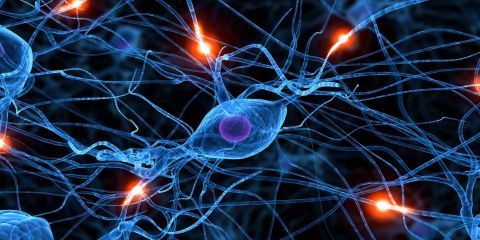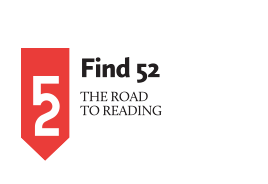The Real Story Behind Stories

A survey of scientific research into reading suggests there’s more going on than meets the eye.
Reading fiction improves empathy.
NEW YORK (October 3, 2013) — Heated debates about the quantifiable value of arts and literature are a common feature of American social discourse. Now, two researchers from The New School for Social Research have published a paper in Science demonstrating that reading literary fiction enhances a set of skills and thought processes fundamental to complex social relationships — and functional societies.
A book is a little empathy machine. It puts you inside somebody else’s head. You see out of the world through somebody else’s eyes. It’s very hard to hate people of a certain kind when you’ve just read a book by one of those people.
NEIL GAIMAN, Author
Ph.D. candidate David Comer Kidd and his advisor, professor of psychology Emanuele Castano performed five experiments to measure the effect of reading literary fiction on participants’ Theory of Mind (ToM), the complex social skill of “mind-reading” to understand others’ mental states. Their paper, which appears in the Oct. 3 issue of Science is entitled “Reading Literary Fiction Improves Theory of Mind.”
Read the Full article
©2016 The New School
Reading for pleasure leads to increased learning.

LONDON (September 2013) — “The influence of the child’s own reading remained highly significant, suggesting that the positive link between leisure reading and cognitive outcomes is not purely due to more able children being more likely to read a lot, but that reading is actually linked to increased cognitive progress over time. From a policy perspective, this strongly supports the need to support and encourage children’s reading in their leisure time, especially given that the available evidence on trends over time suggests that children’s reading for pleasure has declined in recent years. In light of the decline in leisure reading between the ages of ten and 16, our findings suggest the particular need to support teenagers’ reading.”
Excerpt from The Role of Reading: Social inequities in cognitive scores at age 16 by Alice Sullivan and Matt Brown. Centre for Longitudinal Studies, Institute of Education, University of London. First published in September 2013. © Centre for Longitudinal Studies.
Read the Full article
Reading helps us understand other human beings.

“Recent research shows that far from being a means to escape the social world, reading stories can actually improve your social skills by helping you better understand other human beings. The process of entering imagined worlds of fiction builds empathy and improves your ability to take another person’s point of view.”
“Psychologists once scoffed at fiction as a way of understanding people because — well — it’s made up. But in the past 25 years, cognitive psychologists have developed a new appreciation for the significance of stories. Just as computer simulations have helped us understand perception, learning and thinking, stories are simulations of a kind that can help readers understand not just the characters in books but human character in general.”
“It can even change your personality. The seemingly solitary act of holing up with a book, then, is actually an exercise in human interaction. It can hone your social brain, so that when you put your book down you may be better prepared for camaraderie, collaboration, even love.”
Excerpt from In the Minds of Others by Keith Oatley. November December 2011, Vol. 22, Issue 5, of Scientific American Mind. Keith Oatley is Professor Emeriti at University of Toronto, Ontario Institute for Studies in Education. © Scientific American
Reading can re-wire the brain in useful ways.

“We all know that reading a novel can transport you, delight you and intrigue you while you’re reading it. Now, thanks research by scientists at Emory University, we know that immersing yourself in a novel causes measurable physical changes in the brain that can be detected up to five days after the reader closes the book.”
“The Emory researchers, in a paper for the journal Brain Connectivity, compared the effect to ‘muscle memory.’ The neural changes that we found associated with physical sensation and movement systems suggest that reading a novel can transport you into the body of the protagonist,” neuroscientist Gregory Berns said, according to a report in the journal Science Codex. ‘We already knew that good stories can put you in someone else’s shoes in a figurative sense. Now we’re seeing that something may also be happening biologically.’ ”
Excerpt from Reading a novel exercises ‘muscles’ in the brain, researchers find by Hector Tobar. January 3, 2014. Los Angeles Times. Read the Full Article
Short- and Long-term Effects of a Novel on Connectivity in the Brain by Gregory S. Berns, Kristina Blaine, Michael J. Prietula and Brandon E. Pye. ©Emory University


